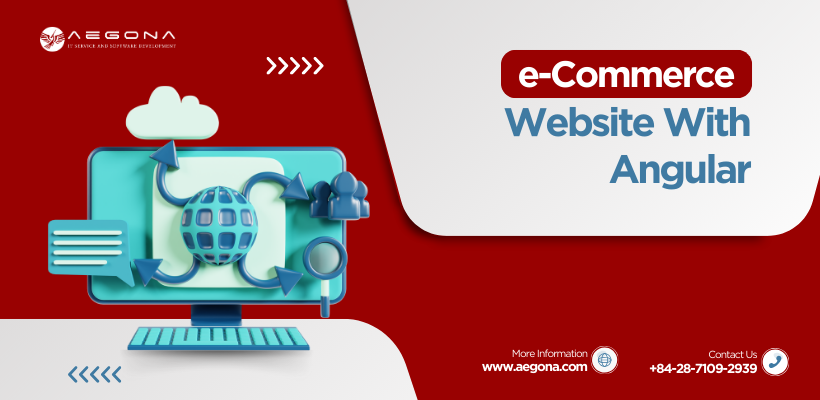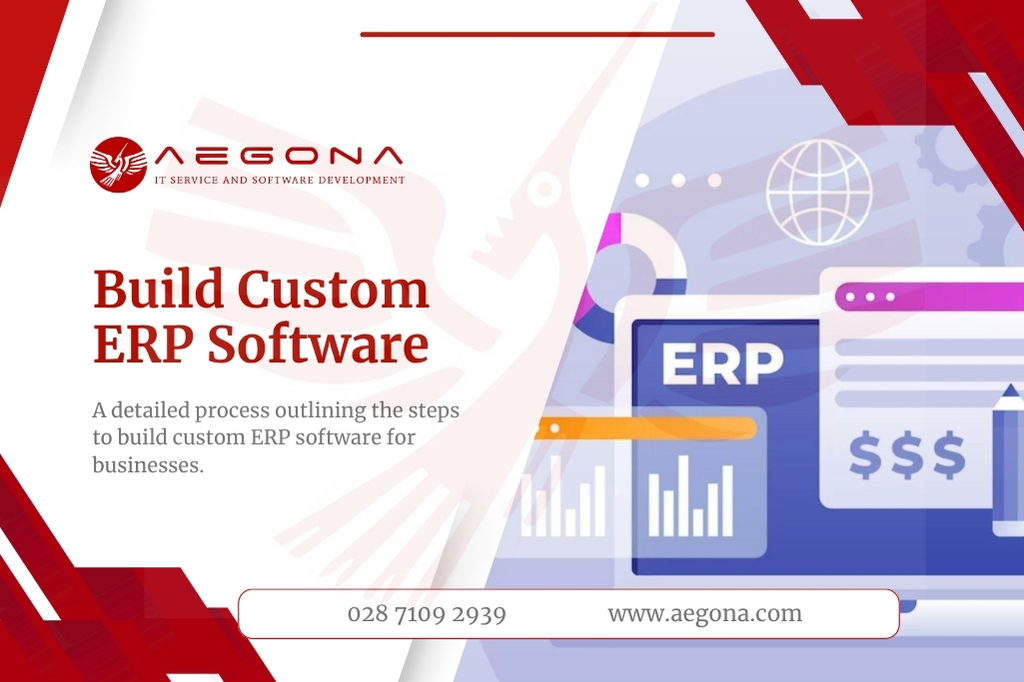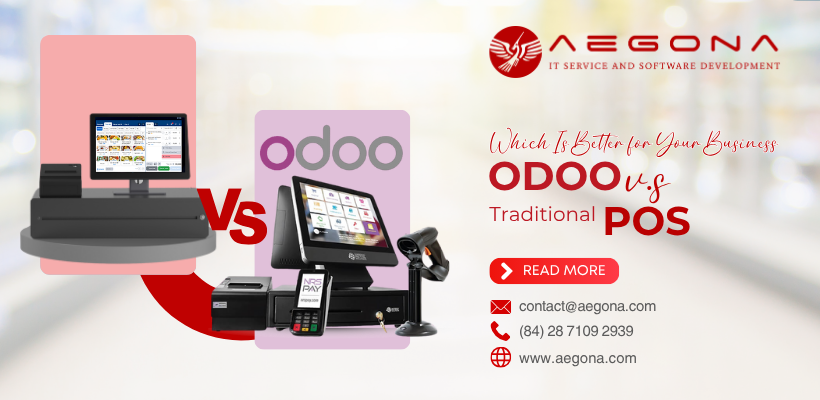e-Commerce Website With Angular: A Complete 2024 Guide

In the ever-evolving landscape of e-commerce, the foundation of success lies in the creation of resilient and intuitive web applications. Angular, a frontrunner among front-end frameworks, offers developers a potent toolkit to craft adaptable and engaging e-commerce solutions. This definitive guide illuminates the essential elements of an e-commerce website with Angular in 2024, traversing the spectrum from initial setup to fine-tuned optimization strategies. Dive deep into the realm of Angular and unlock the potential to revolutionize your e-commerce ventures.
e-Commerce Website With Angular is the practice of leveraging the Angular framework to construct online retail platforms, commonly known as e-commerce websites or applications. Angular, a powerful front-end framework developed and supported by Google, serves as the backbone for creating dynamic, responsive, and seamless single-page web applications. By harnessing the features and capabilities of Angular, developers can craft engaging and efficient e-commerce experiences that cater to the needs of modern online shoppers.
1. Why is Angular Perfect for Ecommerce Development?
Angular, renowned for its versatility and robustness, stands out as an optimal framework for e-commerce development owing to several compelling reasons:
1.1. Two-Way Data Binding:
Angular's two-way data binding streamlines the synchronization between the model and the view, ensuring seamless updates to user interfaces in response to data changes. This real-time updating capability enhances the user experience in e-commerce applications by providing dynamic and responsive interfaces.
1.2. Modularity and Reusability:
Angular's modular architecture facilitates the development of scalable e-commerce applications by promoting code organization into reusable components. Developers can create modular components for various aspects of the e-commerce platform, such as product listings, shopping carts, and checkout processes, thereby enhancing maintainability and facilitating future updates.
1.3. Dependency Injection:
Angular's built-in dependency injection mechanism simplifies the management of component dependencies and promotes loose coupling between modules. This feature is particularly advantageous in e-commerce development, where components often rely on external services for functionalities such as user authentication, payment processing, and inventory management. Dependency injection enhances code flexibility, testability, and overall

2. 6 Easy Steps to Develop an Angular E-commerce Website
Initiate Your Project: Launch your Angular project effortlessly using Angular CLI. With just a few commands, set the foundation for your e-commerce website, saving time and effort.
2.1. Design Your Vision:
Bring your vision to life with captivating designs. Utilize Angular Material or Bootstrap to create visually stunning interfaces that captivate users and enhance their shopping experience.
2.2. Lay the Framework:
Structure your website with modular components and services. Organize product listings, shopping carts, and checkout processes with Angular's robust architecture, ensuring scalability and maintainability.
2.3. Integrate Essential Features:
Seamlessly integrate crucial e-commerce features like product management, user authentication, and payment processing. Leverage Angular's flexibility to incorporate functionalities tailored to your business needs.
2.4. Optimize for Performance:
Fine-tune your website for optimal performance. Utilize lazy loading and code splitting to minimize load times, ensuring swift navigation and a seamless user experience.
2.5. Test and Launch:
Thoroughly test your Angular e-commerce website to iron out any glitches or bugs. Once satisfied, launch your site into the digital sphere, equipped to thrive in the competitive world of online retail.
>> Follow our related blog: Top 5 Best E-Commerce Development Companies For Businesses

3. Benefits Of Angular Ecommerce Development for Business Owners
Angular E-commerce development offers a myriad of benefits for business owners, empowering them to build robust and scalable online stores that drive growth and success. Here are some key advantages:
3.1. Enhanced User Experience
Angular's dynamic and responsive interfaces elevate the user experience, keeping visitors engaged and increasing conversion rates. Smooth navigation, interactive features, and fast loading times contribute to customer satisfaction and retention.
3.2. Modularity and Maintainability
Angular's modular architecture facilitates code organization into reusable components, making it easier to manage and maintain large-scale e-commerce platforms. This modularity streamlines development, updates, and enhancements, reducing time-to-market and overall costs.
3.3. Performance Optimization
Angular's optimization techniques, such as lazy loading and code splitting, improve website performance by minimizing load times and enhancing responsiveness. This ensures a seamless shopping experience even during peak traffic periods, reducing bouncer rates and maximizing sales opportunities.
3.4. Cross-Platform Compatibility
Angular's inherent support for progressive web apps (PWAs) enables businesses to deliver consistent experiences across various devices and platforms. Whether customers are accessing the website from desktops, smartphones, or tablets, Angular ensures a uniform and optimized user experience.
3.5. Scalability and Flexibility
Angular's scalability allows e-commerce businesses to expand their operations without compromising performance or user experience. Whether adding new products, features, or integrations, Angular accommodates growth effortlessly, ensuring the platform evolves alongside the business.
3.6. Secure and Reliable
Angular's adherence to best practices and robust security features ensure the integrity and confidentiality of sensitive customer data. From authentication mechanisms to data encryption, Angular provides a secure foundation for e-commerce websites, instilling trust and confidence among users.
3.7. Community Support and Resources
With a vast community of developers and resources, Angular offers extensive support and guidance for e-commerce projects. From documentation and tutorials to plugins and libraries, business owners have access to a wealth of tools and expertise to enhance their online stores.
Overall, building an e-commerce website with Angular empowers business owners to create high-performing, user-centric online stores that drive revenue, foster customer loyalty, and stay ahead in the competitive e-commerce landscape.
>>Read more: 5 Best ECommerce Website Builders For Online Store In 2024

related post

Amid the vibrant working atmosphere at Aegona, this September and October will be more exciting than ever with the kickoff of the 2025 Internal Chess Tournament

As scheduled, the monthly internal event “Happy Hour” returned to Aegona’s office this September afternoon, bringing along a joyful atmosphere filled with connection, laughter, and positivity.

Discover the key software outsourcing trends in 2025, from AI, automation, hybrid outsourcing to workforce training. Understanding these trends helps businesses optimize costs and improve software quality.

On June 16, 2025, following a series of technical discussions and alignment on technology directions, Aegona and Biblia officially signed a strategic cooperation agreement to develop a comprehensive digital publishing platform that integrates both E-books and Audiobooks.

In the global software development market, outsourcing Node.js development in Vietnam has become one of the most strategic choices for startups, SMEs, and enterprises looking to optimize costs while maintaining top-notch quality.

We are proud to announce that Aegona has officially achieved ISO 9001:2015 certification, an internationally recognized standard for quality management systems.

Outsourced IT staff offers a strategic alternative: you get skilled professionals exactly when you need them, without the overhead of permanent hires.

Build custom ERP software to streamline operations, boost efficiency, and fit your business needs. A complete step-by-step guide.

Discover the best open-source inventory systems like InvenTree. Learn key features, benefits, and tools to optimize warehouse and inventory operations.

Discover how Tender Management software streamlines bidding, boosts efficiency, and when to choose a custom-built solution.

Discover the benefits of hiring offshore PHP developers in Vietnam and explore a step-by-step process to build a skilled, cost-effective development team.

Discover the key benefits and features of real estate app development in Vietnam for businesses aiming to grow in the digital property market.

Custom FinTech app development for banking, insurance, payments & more. Secure, scalable, and tailored to your business.

Odoo POS software is becoming an effective alternative to traditional POS systems thanks to its flexible integration capabilities and reasonable cost. Using sales management software plays an essential role in optimizing business operations. This article will help you compare Odoo software and traditional POS systems to find the most suitable option for your business.
